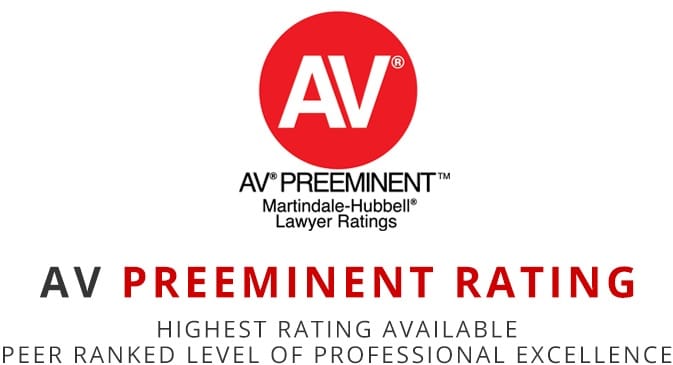Divorce Mediation Attorneys in Greensboro NC
Mediation in the course of divorce
If you and your spouse have made the difficult decision to end your marriage, there are a number of ways you can choose to go about doing so. While the most common method is through litigation, there are also more amicable options including voluntary Mediation through a divorce mediation attorney, the Collaborative Divorce Process, and other alternative dispute resolution techniques. This page discusses Divorce Mediation, but please click here for more information on the Collaborative Divorce process.
What is Divorce Mediation?
Mediation is an alternative dispute resolution method where you and your spouse, as well as your respective Divorce Mediation Attorneys in Greensboro NC, meet with a neutral third party mediator who works with both parties to assist in voluntarily resolving as many issues surrounding your divorce as possible. These issues include decisions on child custody, child support, spousal support, the division of property (equitable distribution) and any other issue related to your case. As discussed below, the mediator attempts to find common ground between the two sides in the hopes of coming to an agreement. In North Carolina as well as other jurisdictions, Mediation is a normal part of most divorce cases. In fact, Mediation is required in all Guilford County lawsuits which involve child custody and equitable distribution issues.
When Can Mediation be used?
Mediation can either be used during litigation itself or as an alternative way to resolve disputes outside of the court system. In the litigation context, many jurisdictions require that parties to a lawsuit engage in mediation prior to a case being heard by a judge. This requirement to mediate forces the two parties to come together and results in many cases settling before a trial is necessary. Outside of litigation, voluntary mediations are helpful in settling disputes before the expense, stress and unpleasantness of a lawsuit are necessary. If a voluntary mediation is successful, the parties can settle their dispute through a contract which sets forth the terms of the agreement. Finally, under some contracts such as Settlement Agreements, mediation may be required before a lawsuit can be filed.

(336) 379-1390
Family Law Services
The Mediation Process
Mediation is the process where two opposing sides meet to find a voluntary resolution of their dispute. The two parties are aided by a mediator, who is an impartial third party who communicates with both sides and tries to determine if there is a way to settle the dispute. Mediators are qualified and experienced professionals who can help the parties be as creative as their unique situations require in order to find common ground upon which agreement can be made. While the parties in mediation may sometimes meet in the same room, it is more typical that each party (and his or her respective attorney) are in separate spaces with the mediator moving between the two. Splitting the parties in this way allows the mediator the chance to speak separately with each party to determine what issues they feel strongly about and to have open and honest dialogue on what type of resolution they wish to achieve.
Because mediators cannot offer legal advice to either party, it is in your best interest to work with an attorney to prepare for the mediation session by assembling documents and outlining your goals toward resolving the issues in your divorce. Your attorney can also be present with you during the mediation process to advise and guide you so that your rights are protected.
Role of the Mediator
As a trained and experienced professional, the Mediator will use his or her experience to assist the parties in identifying their areas of concern and will then facilitate communication back and forth between the two parties in an effort to find common ground. The mediator has no authority to rule on any matters or decide anything that is in dispute. The mediator is merely there to help the parties come to a mutual agreement. In the event the parties appear to be at an impasse, the mediator may offer alternative choices or creative solutions to the problems at hand. The mediator plays a valuable role in trying to help one party see the issues and concerns of the other side. Once both parties are better able to understand the concerns of the other side, it is more likely that a settlement can be reached. If the parties are able to come to a resolution, the mediator might prepare a Memorandum of Understanding which outlines the agreements made during the mediation conference.
Agreements reached in Mediation
Following a successful mediation, you can formalize your agreement through either a court (consent) order or by a written contract. Whether to use a consent order or a contract depends on personal preference and the specific facts of each case. Many divorcing couples are able to reach complete agreement at mediation. While this is not always possible, or even the norm, only matters that could not be negotiated, or settled, at mediation will be considered by a court at a divorce trial.
Advantages of Mediation
Mediation is generally less time consuming and less costly than resolving all matters through the traditional litigation process. Agreements reached in mediation often lead to more amicable and collaborative working relationships due to the reduction of conflict, focus on the future and commitment to an agreement. Mediation is also available to couples who are separating without considering divorce or to those who have issues that arise after a divorce has been granted.
We Can Help
The family law attorneys at Hill Evans Jordan & Beatty are highly skilled and have extensive experience in mediation settlement conferences. We will provide you with the support and expertise you need to reach the best possible resolution of your separation and divorce issues by ensuring that your rights are protected and your concerns are raised during the negotiations. We will also explain the advantages and disadvantages of various settlement proposals, including the responsibilities you will have under each scenario. However, as experienced trial lawyers, we will also vigorously advocate your interests before the court should an agreement not be reach through the mediation process.
Elaine Ashley is a North Carolina Dispute Resolution Certified Family Financial Mediator. She has the skills and experience needed to successfully mediate your case. She is available to serve as a mediator for any case involving divorce-related issues.
Family Law Team Awards & Recognition



RECENT FAMILY LAW RELATED POSTS
WE CAN HELP. GET STARTED HERE.
FIRM RECOGNITION


NC Super Lawyers

AV Preeminent Lawyers


